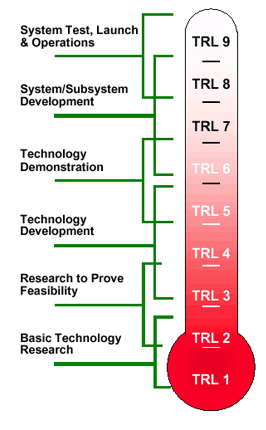I was reading on the Telecom Ecosystem Blog, “Innovation – Where Proof of Concepts Go Wrong” and that got me thinking about hacking and POCs (Proof of Concept). Peter provides a nice frank review of the challenges many POCs face, its embedded at the end of this article.
I remember the VP of a vendor rolling their eyes and saying, “I’m sorry Alan, I know there’s nothing you can do about this. But when is “the carrier” going to stop talking, kicking the tires, and actually buy something.” POCs leave many vendors frustrated and are a great way to kill start-ups as they invest in a great POC only to find the route to cash remains years away.
As Peter Willis points out, “Proof of concepts (PoCs) are a common means to demonstrate, test and introduce new technologies into telcos.” It’s not about product market fit, it’s about technology demonstration. Many of the backend systems are not touched in a POC, there’s a multi-year waiting list there. So which is better a PoC or a hack?
NASA has a great Technology Readiness Index. And that got me thinking about all the hacking I did during my time at BT. I hacked a ranging and leveling system for a long range PON, called a SuperPON. We got the core systems working at 1Gbps over coax. We showed off the achievement to Phil Smith. Who smiled, said well done, now let’s get that working over fibre… A couple of frustrating months later it was.

I worked on many hacks, for example we hacked a VoD demo (BT adverts over copper wire using DSL). During that time I felt like a second class telecom engineer as I wasn’t working on the big POCs and customer trials; I was hacking. But in retrospect, the hacking showed what was possible. It was an important step. We’d naturally show off our work to the vendors who already knew it was possible, but saying it’s unproven or hard helps their negotiating position. Hacking can get you to TRL6, a technology demonstration. To get to TRL7-9 you need to work with vendors and the rest of the telco business.
Today, hacking happens across the product lifecycle for many new devices and services, for companies large and small. Not just in demonstrating a new technology or idea or product:market fit, but also for later stages like growth hacking.
And that got me thinking about the trial’s BT ran like the 1990 Bishop Stortford trial of fiber to the home for TV services. It included interactive TV (VoD), with lots of laser videodisc players in racks. Then the 1994 VoD trial in Suffolk, and with dial-up internet only getting going, the revenue from 1 or 2 video rentals per month did not make sense for DSL. It wasn’t until 2008 that the UK reached 1.5m broadband subscribers and 2009 when broadband was available to half the UK. The learning from the PoC was mostly irrelevant as the technology and people had moved on. The customer experience could have been hacked.
My recommendation is the Telecom Ecosystem Blog should evaluate hacking, it’s working well for many businesses large and small. I’ve run TADHack, the largest global hackathon focused on programmable communications since 2014. Here’s a demonstration of a hack “IMS in Minutes” shown all the way back in 2014. Hacking works in telecoms, in the core infrastructure.
Alan – Nice TADhack demo of Juju, BT Research did a very similar demo using OSM and Juju to build 4G and 5G cores but we called it a PoC not a hack, but I wouldn’t want to argue over semantics. I think what is important is how a PoC evolves to become a field trial, such as you described with Bishop Stortford. My personal experience is that whilst PoCs are relatively simple because they don’t integrate with the real world systems a field trial does require some integration, plus a load of other real world constraints like security, which makes field trials much more complex and much more specific to a telco’s specific operating environment. Given the complexity of field trials I feel that the TEG should walk before it can run by addressing PoCs before it looks at what it can do for accelerating field trials.
Thanks for your comments Peter.
The TADHack demo of Juju was created over a weekend, 24 hours. I think there’s a spectrum of technology demos from a Friday afternoon hack through to month’s long POCs involving multiple businesses and lots of meetings.
Hacking is a mindset that underpins most innovation we see today, test the feasibility of an idea, understand the results, then hack the idea towards an MVP (Minimum Viable Product). It’s iterative, rapid, and gradually involves more of the business, things do need to be architected, but only when absolutely necessary.
Hacking can be applied to many aspects of the business, the customer experience could be hacked, no need for an expensive field trial. Security can be hacked, pen-testing. Enable Security is a nice example, and will be presenting at TADSummit 2022, https://blog.tadsummit.com/2022/05/30/tadsummit-2022-agenda/.
POCs rarely include BOSS integration, the lead times are too long, it’s often a silo.
Perhaps a hacking approach can address many aspects of the traditional POC and field trial process faster and at lower cost? The hack will need to scale, there too we see approaches. Arin and Alberto from WebRTC.Ventures will cover that at TADSummit 2022, https://blog.tadsummit.com/2022/05/30/tadsummit-2022-agenda/
I sometimes feel when I make these points telcos look on and do an Ygritte “you know nothing Jon Snow.” But the scale of many web companies is greater than many telcos. Perhaps copying what’s working on the other side of the fence can help telcos?